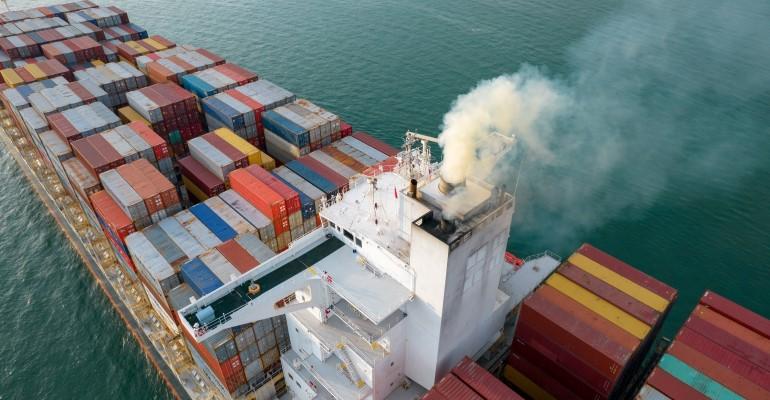It is timely, therefore, that Berlin-based CO2 management firm, zero44, has launched the FuelEU Maritime Calculator, a system that will enable shipping companies to estimate the financial impact of the new regulation.
Designed to promote increased production and adoption of sustainable marine fuels, the regulation will focus on cutting ships’ annual average greenhouse gas (GHG) emissions, with an immediate requirement for a 2% reduction next year compared with 2020 levels. There will be significant non-compliance penalties from the outset.
The carbon intensity targets will become steadily stricter every five years, rising to an 80% reduction requirement by 2050. Meanwhile, a mandate to adopt shore power supplies and another target to take a 2% share of e-fuels will apply from 2030 and 2034 respectively.
One aspect of the new regulation will differ significantly from the EU ETS. Instead of assigning a fuel’s carbon intensity on a tank-to-wake basis, FuelEU Maritime will use a well-to-wake measure. This approach can have a significant impact on a fuel’s carbon reduction impact: black methanol measured on a well-to-wake basis, for example, is significantly more carbon intensive that conventional marine fuels that are used today.
FuelEU Maritime will have a similar framework to that of the EU ETS. It will cover 50% of the energy used by vessels of more than 5,000 gross tons on voyages arriving in or departing from ports in the EEA (European Union plus Iceland and Norway), and 100% of the energy used on voyages between the region’s ports.
The zero44 calculator, which will be available free of charge, will enable users to enter the annual fuel consumption of different fuels – heavy fuel oil, marine gasoil, LNG, or biodiesel, for example – and estimate potential exposure to the EU regulation. The system will then calculate the resulting GHG intensity and the penalties that should be expected.
Frederike Hesse, co-founder and Managing Director of zero44, said: “In order to be able to adapt to Fuel EU Maritime, companies first need to understand what costs they can expect. Our tool makes concrete what was previously abstract. We hope it will give as many companies as possible an initial incentive and a basis to take a closer look at the topic.”
Copyright © 2024. All rights reserved. Seatrade, a trading name of Informa Markets (UK) Limited.
Add Seatrade Maritime News to your Google News feed.  |

